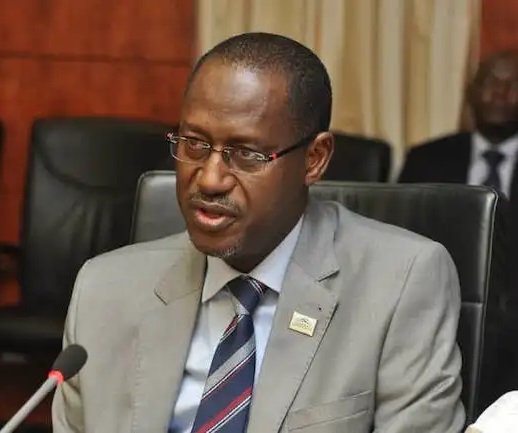News
Policy review on increased funding for housing in Nigeria gets approval

The Federal Ministry of Housing and Urban Development has directed the government at all levels to review policies on housing in terms of increased funding to increase access to affordable housing to Nigerians.
The approval was contained in a communique signed on Friday by Mr Ahmed Dangiwa, Minister, Federal Ministry of Housing and Urban Development at the end of the 12th Meeting of the National Council on Lands, Housing and Urban Development (NCLHUD), held in Kaduna.
The council also gave approval for the initiation of the process of the implementation of the National Technical Development Forum on Land Administration (NTDF).
Also approved were the establishment of a National Mortgage Registry to serve as a repository for all mortgage transactions in the country.
This is to for the centralisation of the registries of Federal, State and Local Governments.
The National Mortgage Registry resides in the Federal Mortgage Bank of Nigeria (FMBN) in furtherance of its critical role as the enhancer of development of the Mortgage sub-sector in the country.
The council also approved the establishment of a National Social Housing Fund, establishment of Building Materials Manufacturing Hubs in the six geo-political zones of the Federation.
In the same vein, it gave the nod for implementation of the Revised National Urban Development Policy and its full implementation by all tiers of government.
It includes the necessary frameworks for the stakeholders in the built environment and experts to be actively involved in the policy formulation process.
It added, ”whose insights can help in creating policies that are realistic, practical, and aligned with the needs of affordable housing facilities, among others.’
The council, as contained in the communique, promises to promote; appropriate measures to check ownership and occupation of houses built by private developers.
This is to ensure that these houses are occupied to mitigate the high incidence of unoccupied houses in urban centres and rebates on levies and other statutory charges.
This is also to encourage private investments and public private collaboration in housing, adoption of presentation of evidence of compliance with the provisions of the National Building Code.
”This is a requirement for participation in the housing infrastructure development value chain,” the communique added.
It called for collaboration of all the regulatory bodies in project monitoring of sites with the aim of forestalling building collapse.
This is to bring about better result, global financial collaborations in strengthening International partnership for sustainable housing development in the provision of affordable housing for Nigerian citizenry,
”Government collaborations with Shelter Afrique to align her activities with the national housing development priorities and strategies.
”It further assures financial guarantees to Shelter Afrique to enhance its ability to attract private sector investments and reduce the perceived risks associated with its projects.
”This is to promote an enabling environment for global partnership through transparent policies,” the communique added.
It further approved the creation of an Affordable Housing Strategic Fund (AHSF) as considered in the 2022 National Council Meeting.
Also, the council outlined support for; the proposal by the Federal Ministry of Housing and Urban Development to construct 40,000 housing units in two years.
This will be done under the Renewed Hope Cities and Estates and financial incentives; like tax waiver and holidays or recognition for relevant stakeholders that excel in the provision of affordable housing facilities.
The council, however, recommend for consideration the adoption of the Kaduna State Model of land swap by States with land and those with land constraints to develop models peculiar to them,
It recommended relevant authorities to grant waivers and tax holidays on certain construction items, technology and building materials for their profiled and procured developers investing in affordable housing.
The communique, also encouraged amongst others; States and Local Governments to adopt uniform land registry practices and automation of their processes within a reasonable time-frame.
This is as may be prescribed to interlink with the proposed National Mortgage Registry, the immediate implementation of the joint Lagos-Ogun Development Commission.
The council urged the states to consider the review of the Foreclosure Law in the Mortgage and Property Law to further strengthen the interest of local and foreign Investors in the housing sector.
It further urged that efforts be made to bridge the gaps by improving the financial literacy of stakeholders and encouraging Public-Private Partnerships in housing infrastructure development.
The council also advised that government at all levels initiate a policy that will fine completed but unoccupied buildings.
It urged the National Council on Lands, Housing, and Urban Development to facilitate the establishment of the National Urban and Regional Planning Commission.
It, however, urged the state governments and other key stakeholders to further support and collaborate with the ministry and her partners.
This is in effort to prepare the National Physical Planning Standards in line with the Nigerian Urban and Regional Planning Law Act and the Renewed Hope Agenda of the Federal Government.
It added, ”States and Local Governments to embark on the formulation or revision of their respective physical planning standards and their implementation.
”All tiers of government and non-governmental stakeholders take necessary steps to collaborate and support the Federal Ministry of Housing and Urban Development.
”This is in driving this policy preparatory process to a logical conclusion and that state governments seek global financial support and extensive technical collaboration for housing solutions. amongst others.”
The communique also recommended the adoption of the Kaduna State Model of land swap by states with land and those with land constraints.
This is to develop models peculiar to them and that relevant authorities to grant waivers and tax holidays on certain construction items, technology and building materials for their profiled and procured developers investing in affordable housing.




 Davido's Net Worth & Lifestyle
Davido's Net Worth & Lifestyle 
